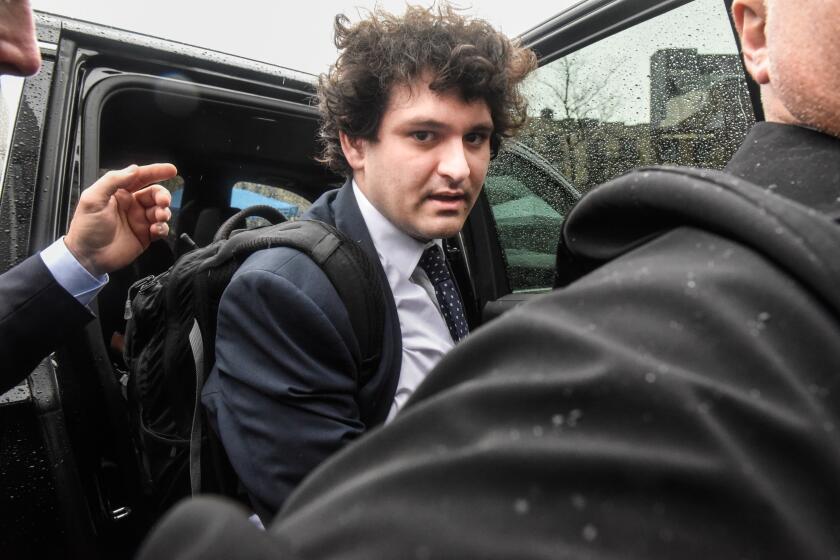Crypto fugitive Do Kwon is arrested in Montenegro and charged with fraud in U.S.

Terraform Labs co-founder Do Kwon, who presided over a more than $40-billion cryptocurrency implosion last year, was detained in Montenegro slightly more than a month after the U.S. Securities and Exchange Commission accused him of fraud.
The 31-year-old was detained in Podgorica along with Hon Chang Joon while trying to fly to Dubai using falsified Costa Rican traveling documents, Montenegro’s Interior Ministry said in a statement Thursday. The two were also found with Belgian and South Korean traveling documents, the ministry said; the Belgian papers were falsified, according to Interpol. Police also took three laptops and five mobile phones from the pair, the ministry said.
Kwon’s whereabouts have been the source of constant speculation since September, when authorities in his native South Korea issued a warrant for his arrest on allegations including breaches of capital-markets law. The country has stripped him of his passport and said he’s the subject of an Interpol red notice.
Kwon found himself at the center of one of the crypto sector’s most damaging episodes last May, when the TerraUSD stablecoin he helped create and its sister token Luna suddenly cratered. That event set off a chain of failures across the digital-assets space that culminated with the bankruptcy of Sam Bankman-Fried’s FTX six months later. Outfits including hedge fund Three Arrows Capital and lender Celsius Network toppled along the way.
Kwon didn’t immediately respond to efforts to contact him via Telegram message and email. Representatives of Terraform Labs did not respond to a request for comment. The entrepreneur has previously denied wrongdoing and that he was a fugitive from justice. South Korean prosecutors and police couldn’t immediately be reached after regular hours.
The cryptocurrency crash has people talking about regulating and centralizing the notoriously anti-regulation, decentralized industry. But would regulations change cryptocurrency so much that it would essentially stop being crypto?
A successor to the Luna token fell more than 7% after news of the arrest before recouping some losses, according to CoinGecko.
In February, the SEC turned up the heat on Kwon when it alleged in federal court that Terraform Labs and Kwon offered and sold unregistered securities, including the stablecoin, and carried out a scheme that wiped out at least $40 billion worth of market value.
The TerraUSD stablecoin was meant to keep a constant value of $1. Unlike other similar tokens that rely on a reserve of liquid assets, the system used on a complex mix of algorithms and trader incentives involving Luna. But it unraveled when confidence in Kwon’s project evaporated during a few chaotic days in early May. Cryptocurrencies swooned, and didn’t recover until early this year.
The prosecutors’ office in Seoul in early December said Kwon was reportedly in the Balkan nation of Serbia, a few weeks after indicating that he had flown to Dubai likely as a stopover to destinations unknown after exiting Singapore, where his Terraform Labs project had a base.
Prosecutors have also sought to freeze digital assets allegedly linked to Kwon.
A fresh indictment of FTX co-founder Sam Bankman-Fried features a pair of co-conspirators the U.S. says helped illegally seek to influence the regulation of cryptocurrency through millions in campaign donations.
Exactly what sparked the implosion of Kwon’s project remains a mystery. U.S. authorities were investigating possible links to Bankman-Fried, whose FTX exchange and trading house Alameda Research spiraled into bankruptcy in November.
Bloomberg writers Emily Nicolle, Jasmina Kuzmanovic, Jan Bratanic and Vildana Hajric contributed to this report.
More to Read
Inside the business of entertainment
The Wide Shot brings you news, analysis and insights on everything from streaming wars to production — and what it all means for the future.
You may occasionally receive promotional content from the Los Angeles Times.












